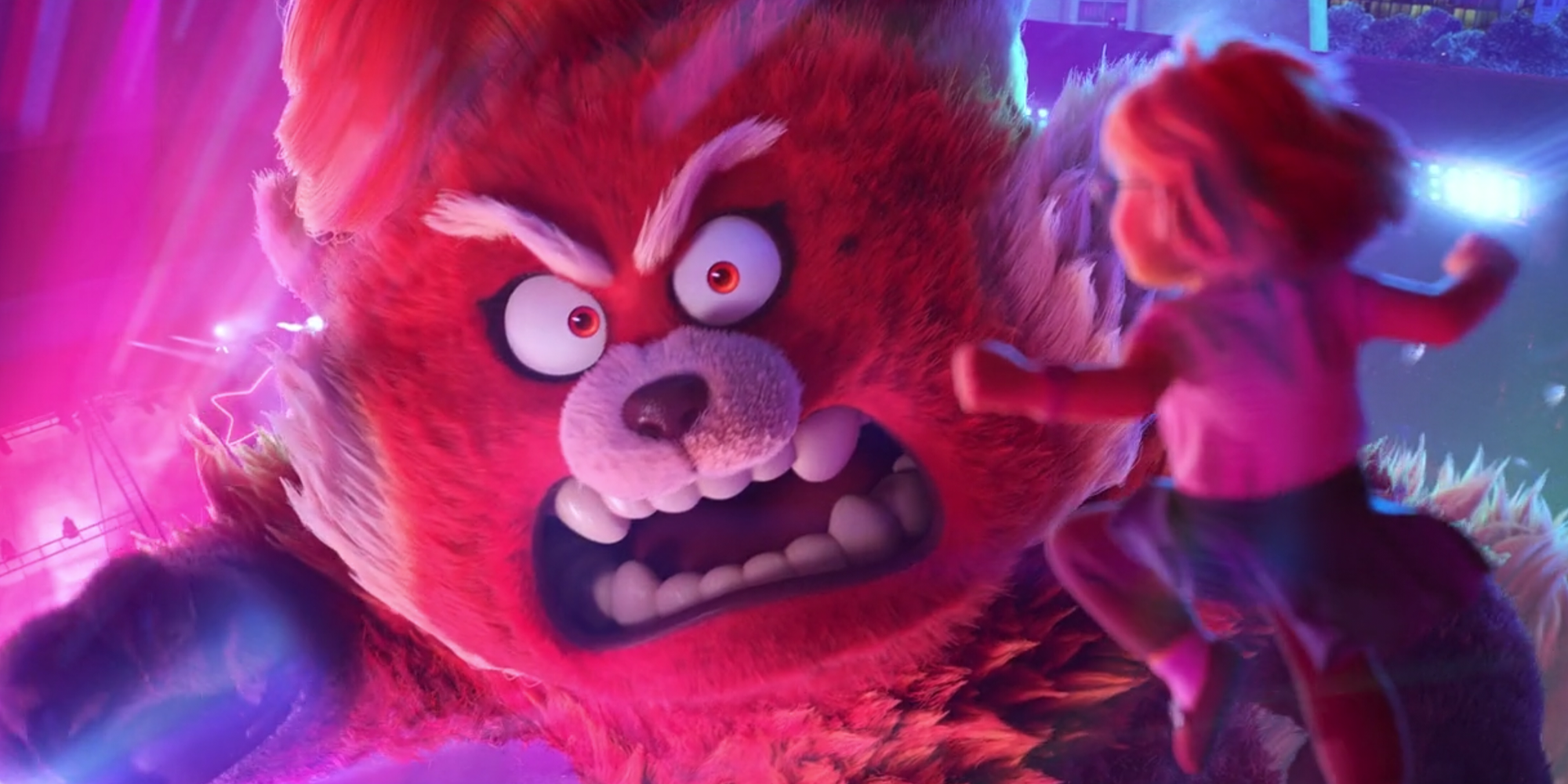Warning: Spoilers for Turning Red.
The ending of Turning Red is hinted at from the very start of the movie through the colors used in Mei Lee’s costume. Domee Shi’s animated coming-of-age story sees thirteen-year-old Meilin “Mei” Lee (voiced by Rosalie Chiang) navigate teenage life in Toronto while managing the shock of her new ability to turn into a large red panda whenever she feels strong emotions. While Mei is initially upset by her panda form and tries to hide it, she gradually comes to embrace the transformation. Much to the chagrin of her overprotective mother Ming (Sandra Oh) and other female relatives who previously had the same power, Mei decides to keep the red panda at the end of the movie.
The titular color red is particularly symbolic throughout the movie. It is not only the color of red pandas, but also the Canadian flag, along with the film’s rather unsubtle metaphor on menstruation, which Turning Red deals with in several scenes. Mei almost always wears red or pink shades throughout Turning Red, reflecting her inner red panda personality. Her cardigan, leggings, and even the hat she wears to conceal her newly reddened hair all share the bold color.
Mei’s preference for wearing red suggests that she was going to keep the panda from the start. Her crimson outfit choice contrasts with Mei’s formerly red panda mom and other female relatives who wear shades of teal and green, including her aunties and grandma Wu (Wai Ching Ho). These characters influence and advise the protagonist, and Mei’s green hair clip is a subtle indication of the impact that they have on her thoughts and actions. Given that her overbearing mom Ming has “brainwashed” her into becoming an overachieving and loyal daughter, it is likely that the clip represents Ming’s influence most of all.
As the movie progresses, Mei’s costume and actions begin to demonstrate that even though she continues to wear the clip and conform to Ming’s expectations at home, her personality is changing. The addition of a typical noughties choker makes her look more like characters from her own age group such as Miriam (Ava Morse) and brings her fashion more up to date with Turning Red’s 2002 setting. Though she initially doesn’t wear the choker around Ming, she can’t hide the rebellious “messy, loud, and weird” part of herself for very long, and she is seen wearing it in front of Ming when she is driven home after Tyler’s party.
Like the choker, Mei’s red panda cannot be concealed forever. Mei initially keeps the panda “hidden away” from Ming, but has to “let it out” by the end. Before the panda-removal ceremony, Mei takes off the green clip which ties her to Ming’s impossible standards, and covers it with a red flower which is identical to other flowers she wore in childhood photos at the start of the movie. This accessory change indicates that Mei will stay true to who she is even as she discovers new sides to herself through puberty and accepts that red pandas are an important part of who she is becoming.
In the end, Mei’s bold red clothing shows that she has always known who she truly is, and she will embrace the panda rather than meeting her mom’s impossible standards and becoming a teal-wearing clone like the other women in her family. Although Mei reconciles with her mom and puts the green hair clip back on after the 4*Town concert, the end of Turning Red sees Mei proclaim “my panda, my choice, mom”. She confidently asserts that she will not always conform to her mom’s expectations, but will be the “messy, loud, and weird” red panda that her fashion sense has always identified her with. While still fulfilling her temple duties as a loving daughter, she asserts her individual personality at the end of the movie by choosing to wear her choker and reveal her panda in front of Ming.
